Introduction
Can Cockatiels Eat Tomatoes: Cockatiels are delightful and colorful parrot species that are beloved by many bird enthusiasts for their charming personalities and beautiful plumage. These small parrots are not only known for their vocal talents but also for their unique dietary preferences. As responsible bird owners, it’s essential to provide them with a well-balanced diet to ensure their health and happiness. One common question that arises is whether cockatiels can safely consume tomatoes, a staple in human diets. In this exploration, we will delve into the nutritional aspects of tomatoes, the potential benefits and risks associated with feeding them to cockatiels, and guidelines to help you make informed decisions regarding their dietary choices. So, let’s uncover the facts about whether tomatoes can find a place on your cockatiel’s menu. Cockatiels live are known to have diverse dietary needs, which include a mix of seeds, fruits, vegetables, and high-quality pellets.
However, when it comes to introducing new foods to their diet, caution is always warranted. Tomatoes, a widely enjoyed fruit in human cuisine, raise questions due to their unique nutritional profile and potential toxicity concerns for birds. In this discussion, we will explore the nutritional value of tomatoes, the potential benefits they might offer to cockatiels, and the potential risks associated with their consumption. We will also provide practical guidelines to help you make informed decisions about whether tomatoes should be included in your cockatiel’s diet, ensuring their health and well-being remain a top priority. So, let’s embark on this journey to understand whether tomatoes can be a safe and healthy addition to your beloved cockatiel’s menu. Tomatoes are well-known for their rich content of vitamins and antioxidants, particularly vitamin C and lycopene. These nutrients can be beneficial for humans, offering a boost to the immune system and aiding in overall health.
However, when it comes to our feathered friends like cockatiels, the picture is more nuanced. While tomatoes do contain some vitamins and antioxidants that can be beneficial, they also have potential drawbacks for cockatiels. The main concern lies in the presence of a compound called solanine, which is found in the green parts of tomatoes, like the stems and leaves, as well as in unripe fruit. Solanine can be toxic to birds in larger quantities and might lead to digestive issues or even more severe health problems. In this exploration, we will weigh the pros and cons of feeding tomatoes to cockatiels, including the potential nutritional benefits and the precautions you should take to ensure their safety. We will also discuss alternative fruits and vegetables that may be better suited to your cockatiel’s dietary needs. So, let’s continue to uncover the facts about tomatoes and whether they should have a place in your cockatiel’s diet.
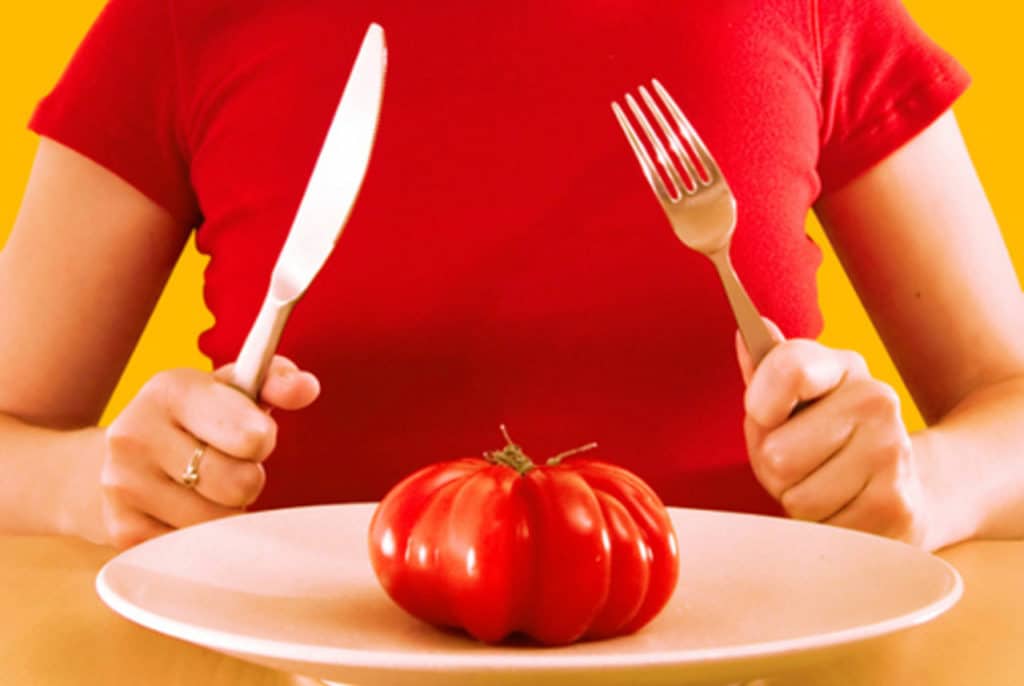
Are tomatoes safe for birds?
While fresh tomatoes are not actually toxic to birds, many vets recommend not feeding them because they are acidic and can irritate a bird’s digestive system. Lots of bird parents also skip tomato products like ketchup, salsa and all the other ways tomatoes make their way onto our plates.
If you decide to offer tomatoes to your avian companions, it’s crucial to remove all green parts, including stems, leaves, and unripe portions. These are the most likely sources of solanine and should be discarded.
While small, occasional amounts of ripe, red tomato fruit may be offered to some birds, it should be considered a treat rather than a staple in their diet. Moderation is key to avoid potential digestive problems.
Birds, like humans, can have individual tolerances and sensitivities to certain foods. Some birds may tolerate tomatoes well, while others may experience adverse reactions. Monitor your bird closely when introducing new foods and watch for any signs of discomfort or digestive issues.
Can cockatiels have onions?
Onions in any form, raw or cooked, can be toxic for cockatiels and lead to severe health issues and even death. Onions contain sulfur compounds that can cause red blood cells to rupture and cause digestive issues. The acidity of the vegetable can trigger mouth and stomach ulcers.
Given these potential risks, it is highly advisable to completely avoid feeding onions to your cockatiel. Even cooked or processed forms of onions, such as onion powder or cooked dishes containing onions, should be kept far away from your pet bird.
When offering treats or supplements to your cockatiel, it is crucial to prioritize foods that are known to be safe and nutritionally appropriate for their species. High-quality pellets formulated for cockatiels, fresh fruits, and vegetables like leafy greens, carrots, and bell peppers can be excellent choices to provide a balanced and healthy diet.
Always consult with a knowledgeable avian veterinarian if you have concerns about your cockatiel’s diet or if you suspect they may have ingested something harmful. Keeping your feathered companion safe and healthy should always be your top priority.
Can birds eat red tomatoes?
As mentioned above, birds can and do eat tomatoes raw. You can simply take a handful of fresh tomatoes, either whole or chopped, and place them out for the birds in your garden. Just make sure these are fresh and not rotting, and all the greenery has been removed, to prevent any potential problems.
Remove any seeds and the central core of the tomato before feeding it to your bird. While tomato seeds are generally not considered harmful in small quantities, removing them is a best practice to avoid potential digestive issues.
A healthy avian diet should be diverse. Tomatoes can be a nutritious addition to the mix, but they should not be the sole source of nutrition. Birds benefit from a well-rounded diet that includes a variety of fruits, vegetables, seeds, and high-quality pellets or formulated bird food.
Just like humans, individual birds may have sensitivities or allergies to certain foods. Observe your bird closely when introducing new items into their diet and be on the lookout for any adverse reactions.
Can parrots eat chilli?
Parrots eat seeds of chillies and it’s a healthy treat for parrots. Did you know that chillies are rich in Vitamin A, which helps in the growth and repair of tissues and also for good eyesight and hearing. Eating chillies also helps in improving feather quality, colour and shine.
The heat or spiciness in chilli peppers comes from a compound called capsaicin. Capsaicin can be irritating to a parrot’s mouth, throat, and digestive system. Ingesting capsaicin can result in pain and discomfort for your feathered friend.
Just like humans, individual parrots may have allergies or sensitivities to specific foods. Feeding chilli peppers to your parrot can trigger allergic reactions, which may manifest as respiratory distress or skin issues.
While chilli peppers are a source of vitamins and antioxidants, their nutritional benefits are outweighed by the potential harm they can cause to a parrot’s sensitive system. Parrots have specific dietary needs that are best met with a variety of safe fruits, vegetables, and high-quality pellets formulated for their species.
Can cockatiels eat rice?
Yes, boiled rice is ok to give to cockatiels. However, if possible, you should prefer to give them brown rice rather than white. White rice has far fewer nutrients and does not offer any significant benefits to your bird. Always make sure to only give rice in moderation because it is a high-carb food product.
Rice should only be a small part of your cockatiel’s diet. It can be given as an occasional treat but should not replace the primary components of their diet, which should include high-quality pellets formulated for cockatiels, fresh fruits, and vegetables.
Cockatiels, like all birds, benefit from a varied diet. While rice can provide some carbohydrates, it lacks the full range of nutrients that cockatiels require for optimal health. Ensure that your bird’s diet includes a mix of fruits and vegetables like apples, carrots, leafy greens, and bell peppers to provide essential vitamins and minerals.
When introducing any new food into your cockatiel’s diet, observe their behavior and health closely. Birds may have individual preferences and tolerances, so watch for any adverse reactions or changes in digestion.
Can cockatiels eat banana?
Yes, cockatiels can eat bananas as a treat. But it’s important to remember fresh fruits should only be given to pet birds in moderation as a supplement to a balanced diet.
Cockatiels, like all birds, thrive on dietary variety. Bananas can be part of the mix, but it’s important to offer a diverse range of foods, including high-quality pellets formulated for cockatiels, fresh vegetables, and other bird-safe fruits.
When introducing any new food into your cockatiel’s diet, observe their behavior and health closely. Birds may have individual preferences, and some may enjoy bananas more than others. Ensure that your bird tolerates bananas well and does not experience any adverse reactions.
If you have specific concerns about your cockatiel’s diet or if your bird has any underlying health conditions, it’s advisable to consult with an avian veterinarian. They can provide personalized guidance based on your cockatiel’s individual needs.
Can cockatiels eat eggs?
Eggs are full of protein and calcium and definitely a good choice for cockatiels in moderation. However, it might take time for your cockatiel to start eating a new food item. Offer eggs in a shallow dish with plenty of fresh water. If they still don’t eat it, you might have to resort to feeding them supplements.
While eggs can be a nutritious addition to your cockatiel’s diet, they should be given in moderation. Consider eggs as an occasional treat rather than a primary source of nutrition. A small portion a few times a month is sufficient.
A healthy avian diet is diverse, consisting of a mix of fruits, vegetables, high-quality pellets formulated for cockatiels, and occasional treats like eggs. Eggs should not replace the core components of your bird’s diet.
As with any new food introduction, monitor your cockatiel’s response to eggs. Some birds may enjoy them, while others may not show much interest. Pay attention to any signs of digestive discomfort or allergies.
Can cockatiels eat cabbage?
Cabbage is also nutritious, but as bird owners, we should not give it to our pet cockatiels because it can cause calcium deficiency in the long term. It’s best to find some other fresh vegetables with nutritional value similar to cabbage.
Like all treats and vegetables, cabbage should be given in moderation. While cabbage offers some vitamins and dietary fiber, excessive consumption can lead to digestive upset in some birds. Offering a small portion a few times a week is typically sufficient.
When introducing new foods into your cockatiel’s diet, pay attention to their response. Some birds may take to cabbage immediately, while others may be more hesitant. Monitor for any signs of digestive discomfort or allergies.
If you have specific concerns about your cockatiel’s diet or if your bird has any underlying health conditions, consult with an avian veterinarian. They can provide personalized guidance based on your cockatiel’s individual needs.
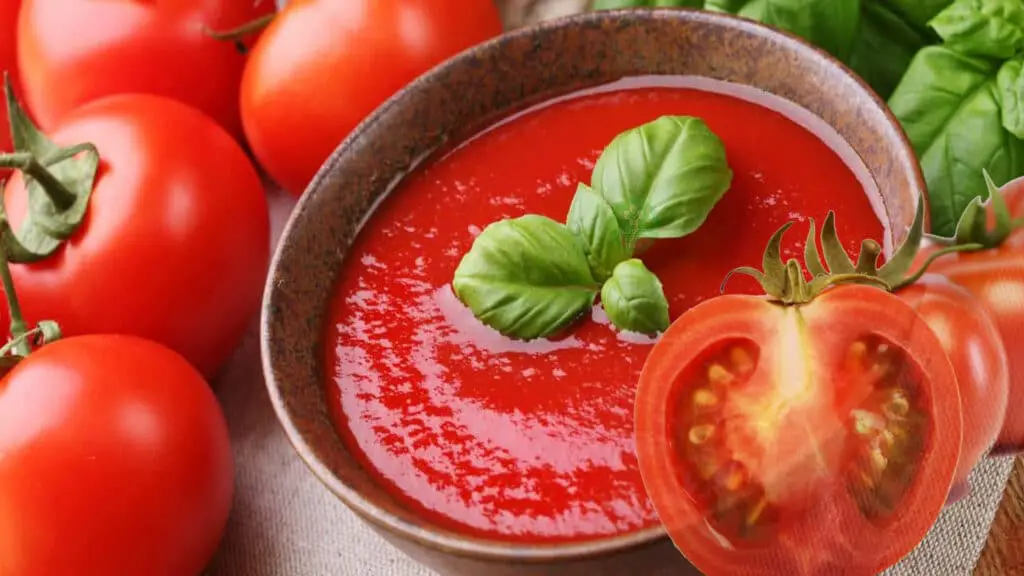
Conclusion
While tomatoes offer certain nutritional benefits, such as vitamins and antioxidants, they also come with potential risks, primarily due to the presence of solanine in the green parts and unripe fruit. As responsible cockatiel owners, it is crucial to exercise caution when introducing new foods into their diet. If you decide to offer tomatoes to your feathered companion, it is advisable to do so in moderation and with careful preparation. Remove all green parts and seeds, as these are the most likely sources of solanine. Additionally, monitor your cockatiels eat closely for any adverse reactions, such as digestive issues or discomfort, and consult with an avian veterinarian if you have concerns. Ultimately, while tomatoes can be included as an occasional treat in your cockatiel’s diet, it is essential to prioritize a well-balanced and varied assortment of foods that meet their specific nutritional needs.
This can include a mixture of high-quality pellets, fresh fruits, and vegetables that are known to be safe and beneficial for these charming birds. Always consult with a knowledgeable avian veterinarian for guidance on providing the best diet and care for your beloved cockatiel. Cockatiels thrive on a diverse diet. While tomatoes may be considered an occasional treat, it’s crucial to offer a wide range of fruits and vegetables that are known to be safe for them. Leafy greens, carrots, apples, and berries are some excellent options. The majority of a cockatiel’s diet should consist of high-quality pellets specially formulated for them. These pellets ensure that your bird receives all the essential nutrients they need for optimal health. Whenever you are unsure about a specific food item or dietary choices for your cockatiel, it’s wise to consult with an avian veterinarian. They can provide personalized guidance based on your bird’s individual health and dietary needs. Pay close attention to your cockatiel’s reaction to any new food you introduce.
Birds have individual preferences and tolerances, so watch for any signs of digestive issues, allergies, or discomfort when introducing new foods. Besides tomatoes, be aware of other foods that are toxic to cockatiels, such as chocolate, caffeine, avocado, and alcohol. Keep these items far away from your bird’s reach. In summary, while tomatoes can be offered in moderation, maintaining a balanced, nutritious diet and consulting with an avian vet are essential aspects of providing the best care for your cockatiel. By being attentive to their dietary needs and preferences, you can ensure your feathered friend remains happy and healthy for years to come. In essence, providing proper nutrition and care for your cockatiel is a multifaceted task. Regularly educating yourself on their dietary needs, consulting with a vet, and being attuned to your bird’s behavior and health can contribute significantly to their well-being and longevity.

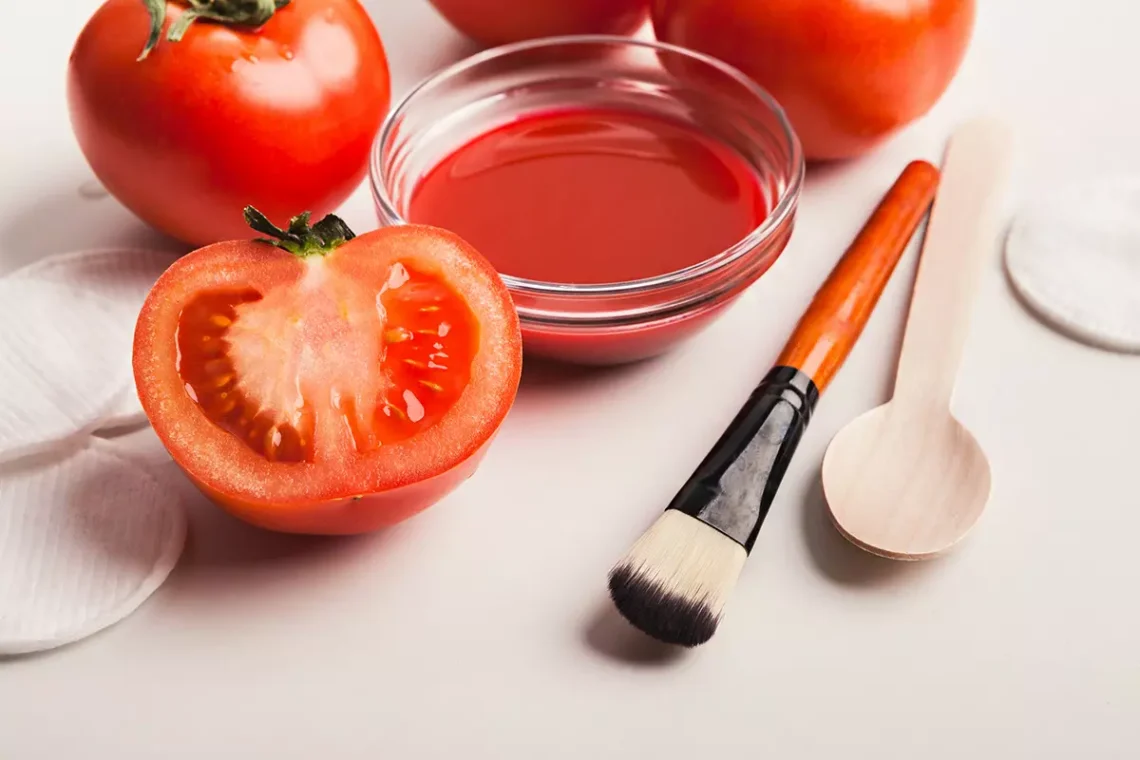
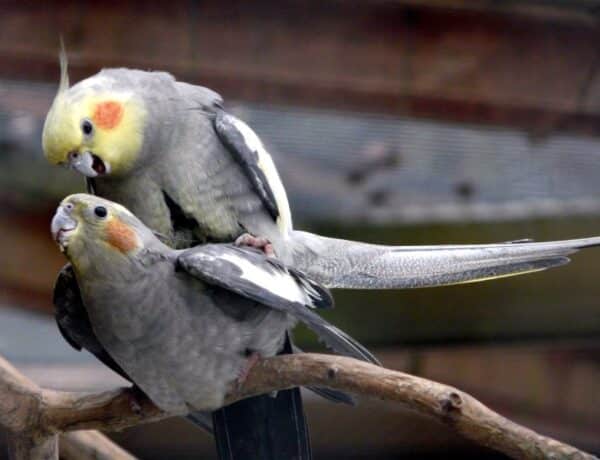
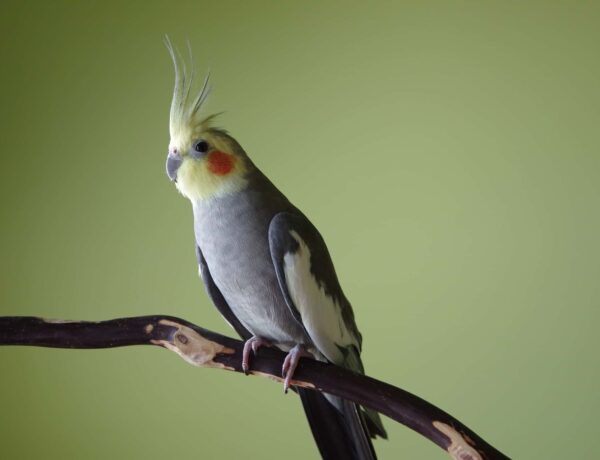
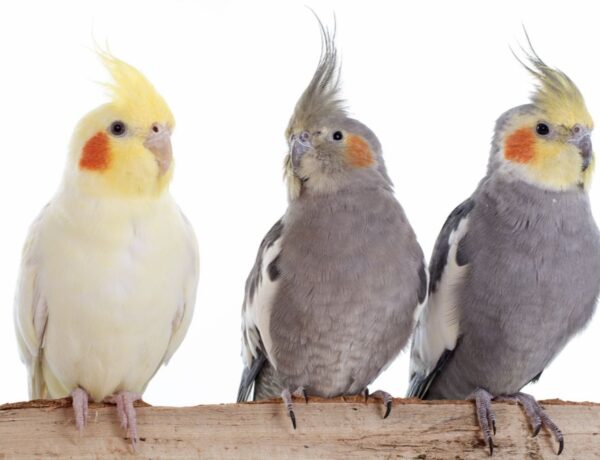
No Comments